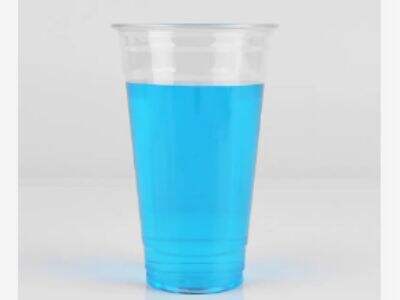In de vroegere dagen dronken mensen met houten, lemen en metalen bekers. Deze waren ontzettend zwaar en soms heel moeilijk te maken. Maar in de jaren '60 veranderde alles door een paar belangrijke ontdekkingen: plastic bekertjes. En weken later leken deze bekertjes nauwelijks op de vorige.
Wat zijn plastic bekertjes?
Plastic bekers: licht, goedkoop en gemakkelijk te produceren. Door hun eenvoud begonnen mensen ze te gebruiken voor een breed scala aan evenementen. Ze zouden beschikbaar zijn op feestjes, picknicks en zelfs gewoon om thuis of op school te drinken. Maar heb je ooit gewonderd hoe plastic wordt geproduceerd? De kleine bouwstenen van plastic heten polymers. Deze polymers zijn lange moleculaire ketens. Het meest voorkomende type polymer dat wordt gebruikt om plastic Beker te produceren is polyetheen. Het is een polymer afgeleid van de chemische stof ethyleen, dat doorgaans wordt afgeleid van olie of aardgas. Dit verbindt de oorsprong van plastic met fossiele brandstoffen.
Het probleem met plastic
Plastic bekers zijn super handig en nuttig, maar ook voor de natuur schadelijk. De grootste nadelen van plastic is dat het niet afbreekt. Een plastic beker kan 200 tot zelfs 700 jaar nodig hebben om volledig te verdwijnen vanaf het begin van onze aarde. Dit betekent dat veel plastic bekertjes die in de vuilnis belandden vandaag in een andere vorm veranderen. Dit is slecht voor onze planeet. Bovendien kunnen verschillende soorten plastic ook gevaarlijke chemicaliën afgeven die erin zitten. Ze kunnen langzaam in ons voedsel en drank lekken en regelmatig consumeren kan ernstige gezondheidsproblemen veroorzaken.
Plastic bekertjes in ons leven
Toch worden plastic bekertjes zeer vaak gebruikt. Ze zijn op feesten, in restaurants en zelfs bij familie-etentjes thuis. Ze hebben een vaste plek gekregen in onze cultuur. Plastic bekertjes worden soms gebruikt bij studentenfeesten omdat er geen opruimen nodig is (je kunt ze gewoon weggooien). Er bestaat zelfs een spel genaamd beer pong, waarbij mensen pingpongballen gebruiken om ze in plastic bekertjes te laten landen voor punten. Zelfs fastfood-vestigingen serveren drankjes klaarstaand plastic beker en deksels voor onderweg klanten — dus plastic bekertjes komen we veel tegen in ons dagelijks leven.
Op zoek naar betere opties
Omdat plastic helemaal niet goed is voor het milieu, zoeken veel bedrijven naar betere oplossingen voor het maken van bekertjes. Een aantal bedrijven probeert bekertjes te produceren met maïszetmeel en suikerriet, beide plantaardige materialen. Deze materialen zijn ook niet schadelijk voor de Aarde omdat ze helpen bij het natuurlijk afbreken van de producten waarin ze verwerkt zijn. Net op het moment dat bedrijven herbruikbare bekertjes ontwikkelen, maar kunnen ze slechts eenmalig worden gebruikt. Dit zou de afvalreductie maximaliseren die voortkomt uit het gebruik van enkelvoudige plastic bekertjes.
De Toekomst van Bekers
Samenvattend, doorschijnend plastic beker met deksels zijn breed uitgebracht en worden ingevoerd in de meeste aspecten van ons leven. Ze zijn geweldig en eenvoudig in gebruik, maar we moeten onderzoeken welk soort effect ze hebben op de omgeving. Het begrijpen van deze problemen, terwijl we tegelijkertijd plantaardige compositen of herbruikbare bekers gebruiken, kan helpen de toekomst van bekertjes aanzienlijk minder verschrikkelijk te maken voor de planeet. Als we deze veranderingen kunnen doorvoeren, zouden we niet alleen de voordelen van bekertjes kunnen gebruiken, maar ook de omgeving kunnen redden voor toekomstige generaties.








